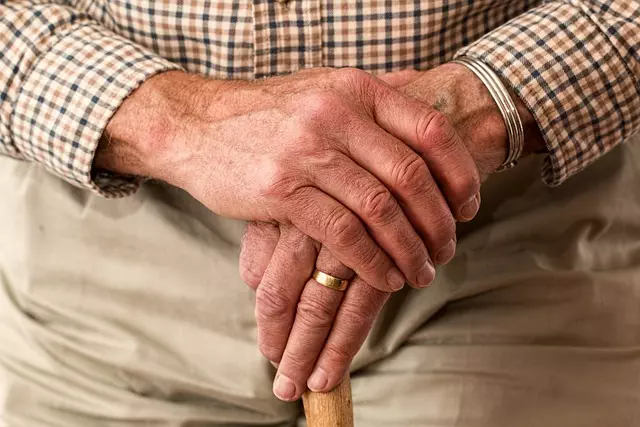Elderly Companion Services are comprehensive support systems designed to enhance the lives of seniors by offering personalized care that caters to their unique needs and preferences. These services ensure a harmonious balance between physical well-being, achieved through light housekeeping and safety modifications like non-slip mats and accessible fixtures, and emotional well-being, with empathetic companionship and engaging social activities. Companions are trained to monitor daily routines for changes that may necessitate care plan adjustments, ensuring a clean, safe, and orderly living environment that respects the client's autonomy and dignity. These services also address nutritional challenges by tailoring meal plans to accommodate sensory, metabolic, and health changes associated with aging, thus promoting digestive health and managing conditions like diabetes or heart disease. Furthermore, Elderly Companion Services focus on fostering emotional support, combating loneliness, and maintaining mental sharpness through social engagement activities. By providing assistance with everyday tasks while encouraging independence, these services aim to improve the quality of life for seniors, allowing them to age in place with comfort and dignity.
When addressing the needs of the elderly, particularly in the realm of light housekeeping and daily routine maintenance, a holistic approach that encompasses companion services proves indispensable. This article delves into the multifaceted nature of providing for the elderlies’ well-being, emphasizing tailored companion services that cater to their unique requirements. We explore the importance of maintaining a safe and accessible living environment, offering practical strategies for light housekeeping specific to the elderly. Additionally, we examine nutritional considerations and the role of companion services in meal preparation, ensuring proper nourishment is part of their daily care. Emotional support and social engagement are also highlighted as crucial aspects of elder companion services, fostering a sense of connection and community. Through these comprehensive measures, elderly clients can enjoy an improved quality of life with dignity and independence.
- Understanding the Needs of Elderly Clients Through Companion Services
- Daily Routine Maintenance: Tailoring Light Housekeeping for the Elderly
- Strategies for Maintaining a Safe and Accessible Living Environment
- Nutritional Considerations and Assistance in Meal Preparation
- Emotional Support and Social Engagement for the Elderly through Companion Services
Understanding the Needs of Elderly Clients Through Companion Services

When providing elderly companion services, it is imperative to develop a deep understanding of each client’s unique needs and preferences. This understanding lays the foundation for delivering tailored support that enhances their quality of life. Companions should be attuned to the subtleties of daily routines, noting patterns and changes that may indicate the need for adjustments in care or living arrangements. By fostering a supportive relationship built on trust and empathy, companions can assist with light housekeeping tasks while also providing companionship, which is an integral aspect of elderly care. This holistic approach ensures that the individual’s physical environment remains clean and safe, but equally important, that their emotional well-being is nurtured through regular interaction and engagement in activities they enjoy. The goal is to create a harmonious living space that reflects the client’s personality and lifestyle preferences, while also ensuring that all necessary domestic tasks are managed with care and attention to detail. By prioritizing the elderly’s autonomy and dignity, companion services can significantly improve their daily lives, promoting independence, comfort, and a sense of security within their own home environment.
Daily Routine Maintenance: Tailoring Light Housekeeping for the Elderly

For elderly individuals, maintaining a comfortable and safe living environment is paramount for their well-being and independence. Elderly companion services play a crucial role in ensuring that light housekeeping tasks are managed effectively, tailoring to the unique needs and capabilities of each senior client. A daily routine that includes regular cleaning and organization not only contributes to a hygienic living space but also helps maintain cognitive function and emotional health. Tasks such as dusting, vacuuming, washing dishes, and tidying up common areas are performed with care to preserve the dignity and comfort of the elderly. These services are designed to be flexible and adaptable, accommodating physical limitations and specific preferences, ensuring that each aspect of the cleaning process is aligned with the client’s desired level of cleanliness and order. By providing personalized elderly companion services, these professionals enable seniors to age in place safely and with dignity, fostering an environment where they can thrive amidst familiar surroundings.
Strategies for Maintaining a Safe and Accessible Living Environment

When providing elderly companion services, maintaining a safe and accessible living environment is paramount. Strategies for achieving this involve a combination of decluttering, rearranging furniture to ensure clear pathways, and installing non-slip mats in bathrooms to prevent falls. Regularly checking that handrails are secure and lighting is adequate, especially in stairways and hallways, helps maintain stability and safety. Additionally, implementing simple home modifications, such as lever-style door handles and adjustable faucets, can greatly enhance the independence of elderly clients. Ensuring that commonly used items are within easy reach and that there is ample lighting throughout the home reduces strain on joints and the risk of accidents.
To further support an elderly client’s well-being, elderly companion services often include regular maintenance checks for household systems, such as heating, cooling, and plumbing. These systems should be functioning efficiently to provide a comfortable living environment and prevent health risks associated with exposure to cold or excessive heat, as well as the risk of water damage from leaks. Regularly testing smoke detectors and carbon monoxide sensors is also a critical aspect of safety, ensuring that emergencies are promptly detected and addressed. By integrating these strategies into the care plan, elderly companion services can significantly improve the quality of life for seniors by creating an environment that is both safe and conducive to their daily activities.
Nutritional Considerations and Assistance in Meal Preparation

When catering to the nutritional needs of elderly clients through companion services, it’s crucial to consider dietary restrictions and preferences while ensuring a balanced intake of essential nutrients. As aging individuals often experience changes in their senses, metabolism, and oral health, meals should be tailored to accommodate these shifts. For instance, foods that are easier to chew and swallow become more important, as does the incorporation of high-fiber options to maintain gut health and prevent constipation. Companion services can assist by preparing soft, nutrient-dense meals that cater to individual dietary requirements, such as those with diabetes or heart conditions, which often necessitate a controlled intake of sugar and sodium. These services can also help monitor fluid intake to prevent dehydration, a common concern for the elderly. Additionally, companions can support meal planning by incorporating a variety of foods that provide the necessary vitamins and minerals, ensuring clients receive a well-rounded diet. This not only supports their overall health but also their ability to maintain independence and vitality.
In providing assistance with meal preparation, elderly companion services play a pivotal role in promoting nutritional health. These services can help clients shop for groceries, understand nutrition labels, and choose fresh, whole foods over processed alternatives. Companions can also engage clients in the cooking process according to their abilities, fostering a sense of accomplishment and maintaining an element of autonomy. This interactive approach not only aids in meal preparation but also provides valuable social interaction, which is essential for mental well-being. By offering support with nutritional considerations and meal preparation, elderly companion services can significantly enhance the quality of life for seniors, ensuring they receive the nourishment necessary to thrive.
Emotional Support and Social Engagement for the Elderly through Companion Services

When considering the emotional well-being and social engagement needs of the elderly, companion services emerge as a vital support system. These services are designed to provide consistent companionship, fostering a sense of belonging and camaraderie that can alleviate loneliness and depression often experienced by seniors. Elderly companion services go beyond mere physical presence; they offer emotional support through active listening, empathy, and engagement in meaningful conversations. This emotional support not only enhances the quality of life for the elderly but also contributes to their overall health and well-being.
Social engagement is an integral part of maintaining both mental acuity and physical health in older adults. Companion services facilitate this by encouraging participation in community activities, social outings, or hobbies that align with the individual’s interests. This aspect of companion care ensures that seniors remain connected to the world around them, fostering a sense of purpose and contribution. Moreover, these services can be tailored to accommodate the unique needs of each elderly client, promoting independence while providing the necessary assistance to navigate daily life with confidence and dignity. Through these personalized interactions, elderly companion services bridge social gaps, enriching lives and nurturing meaningful relationships that extend beyond the scope of mere companionship.
In conclusion, elderly companion services play a pivotal role in enhancing the quality of life for seniors. By understanding their unique needs and tailoring light housekeeping tasks to maintain a safe and accessible living environment, these services not only ensure daily routine maintenance but also address crucial aspects like nutritional assistance and emotional support. The provision of companion services that encourage social engagement further underscores their importance in the lives of the elderly. As we recognize the diverse challenges faced by seniors, it is clear that such personalized and empathetic care is not just beneficial but essential for their well-being.


